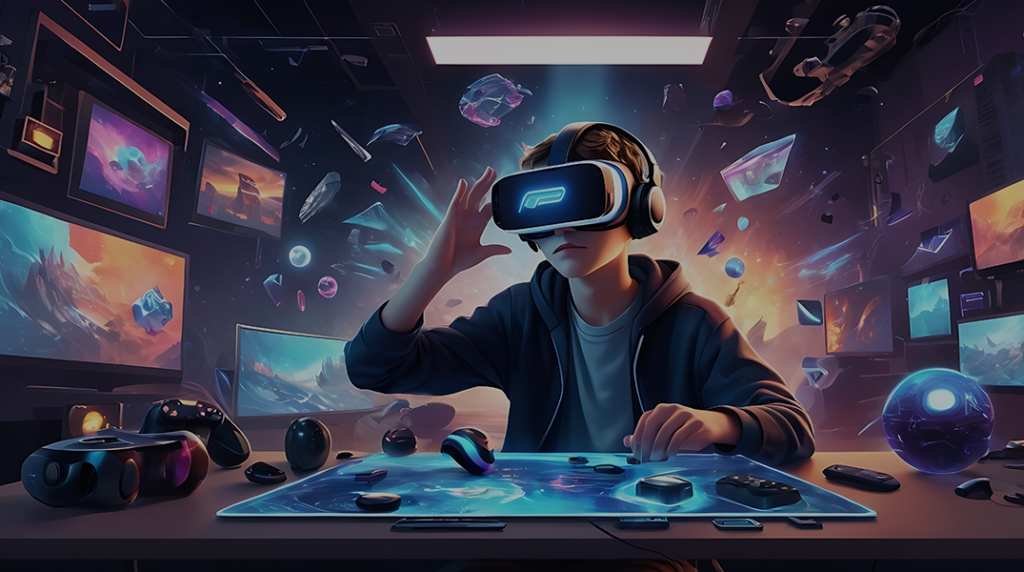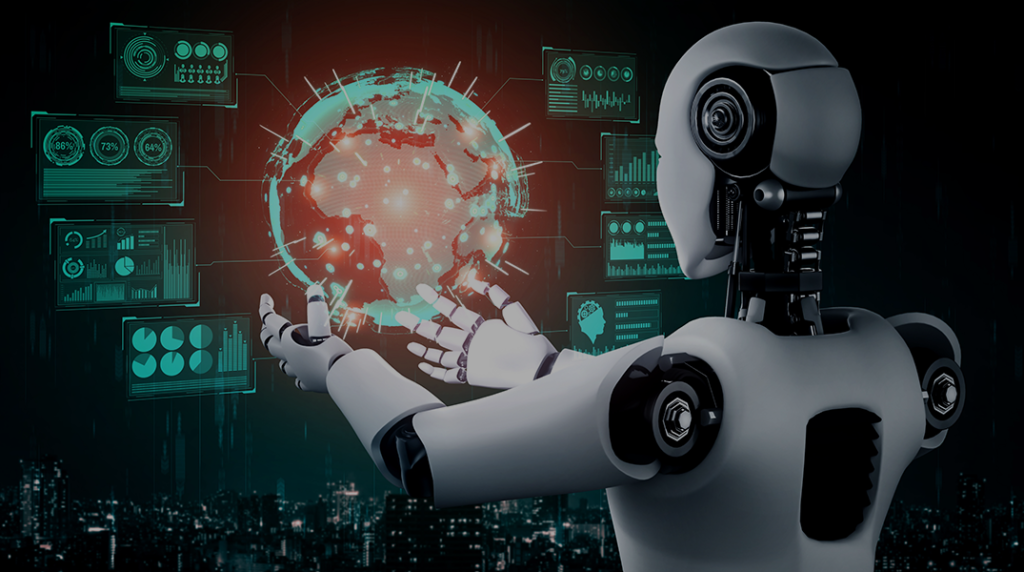Modern technological advances drive rapid transformations across the gaming sector to boost player experience quality while improving both creative initiatives and operational output. Generative AI has emerged as a groundbreaking advancement that leverages machine learning algorithms to build game content while helping with process automation and individual player experience customization. According to Fortune Business Insights research, the worldwide video game industry will expand to $665.77 billion by 2030 while AI technology maintains its essential position in this market evolution. Game developers using AI-driven tools will initiate a big transformation across the industry.
AI-Powered Game Design and Development
Game development receives a breakthrough from generative AI technology that both reduces development costs and speeds up production periods while also automating content generation. Game design traditionally demands time-consuming workflows which include programming work alongside asset production and game-level development tasks. Through tools such as NVIDIA's GauGAN and OpenAI Codex, developers can produce fragments of code alongside landscapes and textures in a fraction of typical coding time. The AI tool Ghostwriter from Ubisoft helps developers create realistic character dialogue which minimizes the scripting work scriptwriters need to perform.
Hyper-Realistic Graphics and Procedural Generation
Procedural generation has been a central technique in the video game industry since it allows developers to build massive interactive worlds with only minimal human intervention. Generative Artificial Intelligence systems currently push the limits of this method. With AI engines based on GANs (Generative Adversarial Networks), developers can create advanced hyper-realistic textures alongside character models that adjust through dynamic processes triggered by player movements. AI tools at Hello Games generate an infinite space containing distinctive planets alongside dynamic ecological varieties and multiple distinct species for No Man’s Sky. Studios now harness this technology to design massive immersive virtual worlds using system automation.
Personalized Gaming Experiences
Generative AI delivers its most thrilling utility by enabling adaptive storytelling together with dynamic non-player character interactions in games. AI technology reviews player activities together with their taste along with their game selection to produce customized gameplay scenarios. Generative AI extends current NPC artificial intelligence capabilities by allowing it to generate specific dialogues as well as real-time quests and challenges beyond what games like The Elder Scrolls and Red Dead Redemption 2 managed to produce.
AI-Generated Music and Soundscapes
Through Generative AI technology sound designers can now generate dynamic sounds that automatically respond to varied on-screen events. AI-powered tools including AIVA and Jukebox games can produce dynamic music that adjusts to numerous in-game events thus deepening gamer immersion. Background music created through AI modulations displays dynamic changes in response to gameplay intensity which produces a smooth immersive performance.
AI in Game Testing and Bug Fixing
The proofing stages of web game development require lengthy quality assurance testing and repeated bug examination although remaining important processes. AI-driven testing instruments such as Modl.ai and Harness.AI create simulated digital environments that test multiple thousands of gameplay situations more effectively than human testers at finding glitches and balancing problems. AI-driven testing promotes faster development times which results in improved launch stability through reduced glitches delivering benefits across developers and gaming audiences.
Bring your vision to life with our VR game designing company, crafting immersive, high-quality virtual experiences that push the boundaries of gaming!
Ethical Considerations and Challenges
Although Generative AI holds great promise in the gaming sector several challenges emerge with its expanding usage. AI-based content production generates three main ethical issues which include intellectual property rights threats, worker displacement, and problematic fabricated storytelling practices. To maintain ethical values in AI applications developers need to create an equilibrium between automated processes and human artistic input.
Conclusion
The video game industry stands on the threshold of fundamental transformation as Generative AI lets developers design richer virtual environments that deliver personalized and detailed gaming worlds. Through advanced graphics technology with artificial intelligence and adaptive audio features combined with automated error detection capabilities, the possibilities reach beyond anyone's imagination. AI development will succeed through responsible utilization to help human creativity instead of machine implementation. One thing is clear: computers are leading gaming in an increasingly intelligent faster and more immersive direction.











